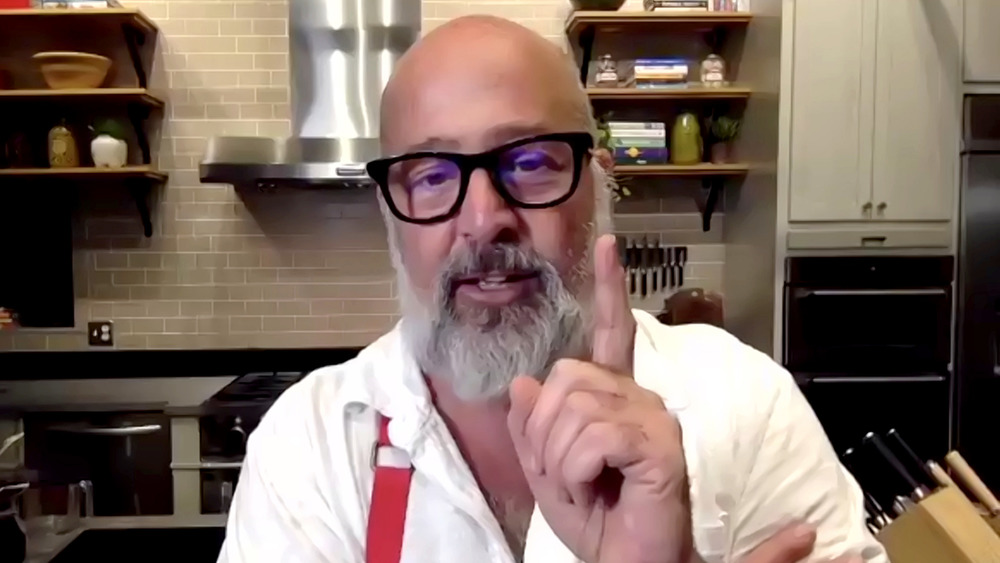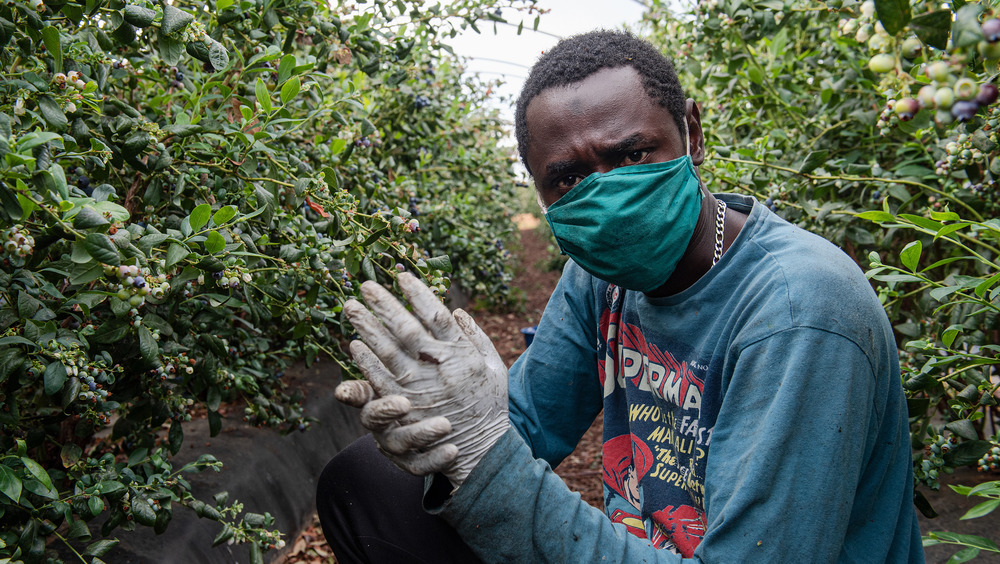The Abuses Andrew Zimmern Says He's Seen In The Food Industry
Andrew Zimmern has seen it all, and not all of it is good. While traveling the world for his entertaining Bizarre Foods shows, he was able to enlighten his audience about unique cultures and cuisines. But as Zimmern pointed out on Twitter on January 22, he has also seen the dark side of the global food experience – the exploitation of farmworkers, who are often immigrants. Zimmern linked on Twitter to a New York Times article about workers from the Pacific Islands flying into Australia to pick fruit on farms there. (It's summer Down Under, of course, and the height of the growing and harvest seasons.)
The Times article reports that 1,500 workers will be flown in from Pacific Island nations to pick fruit that might otherwise be left to rot in the fields. Farm labor has been in short supply in Australia since the nation closed its borders in March, to prevent the spread of COVID-19. Australia faces the same dilemma seen in the United States: Farms there rely on foreign workers to pick crops because Australians don't want to do that kind of work. The locals counter that farms don't want to hire them because they're "not as exploitable as a foreigner."
Migrant farmworkers work long hours for less than minimum wage
While the Pacific Islanders will quarantine for a couple of weeks offshore in Tasmania before picking, the travel and the work will put them at greater risk of exposure to the virus that causes COVID-19. As the Times put it, the situation is another example of how poor and non-white people run greater health risks in the food economy.
"This is a global story in that it affects everyone BECAUSE it happens almost everywhere," Zimmern said in his tweet. "I've seen it in Brazil, Costa Rica, Namibia, USA, Australia, Thailand, UAE, and a dozen other countries firsthand. There should be a global rights program for food/ag workers."
The New Daily in Australia told the story of a foreign worker who picked fruit for a sub-minimum wage, even on her best week. She also had no choice but to stay at a hostel that took a big chunk of her earnings. The Canberra Times reported that blueberry pickers were paid as little as $3 an hour and in some cases had to work seven days a week. Labor unions in Australia are pushing for an enforced minimum wage for farmworkers.
Zimmern has been giving the more serious side of the food industry more attention ever since his Bizarre Foods shows were canceled. He began work about a year ago on a newsier series called What's Eating America for MSNBC (via The Washington Post).

